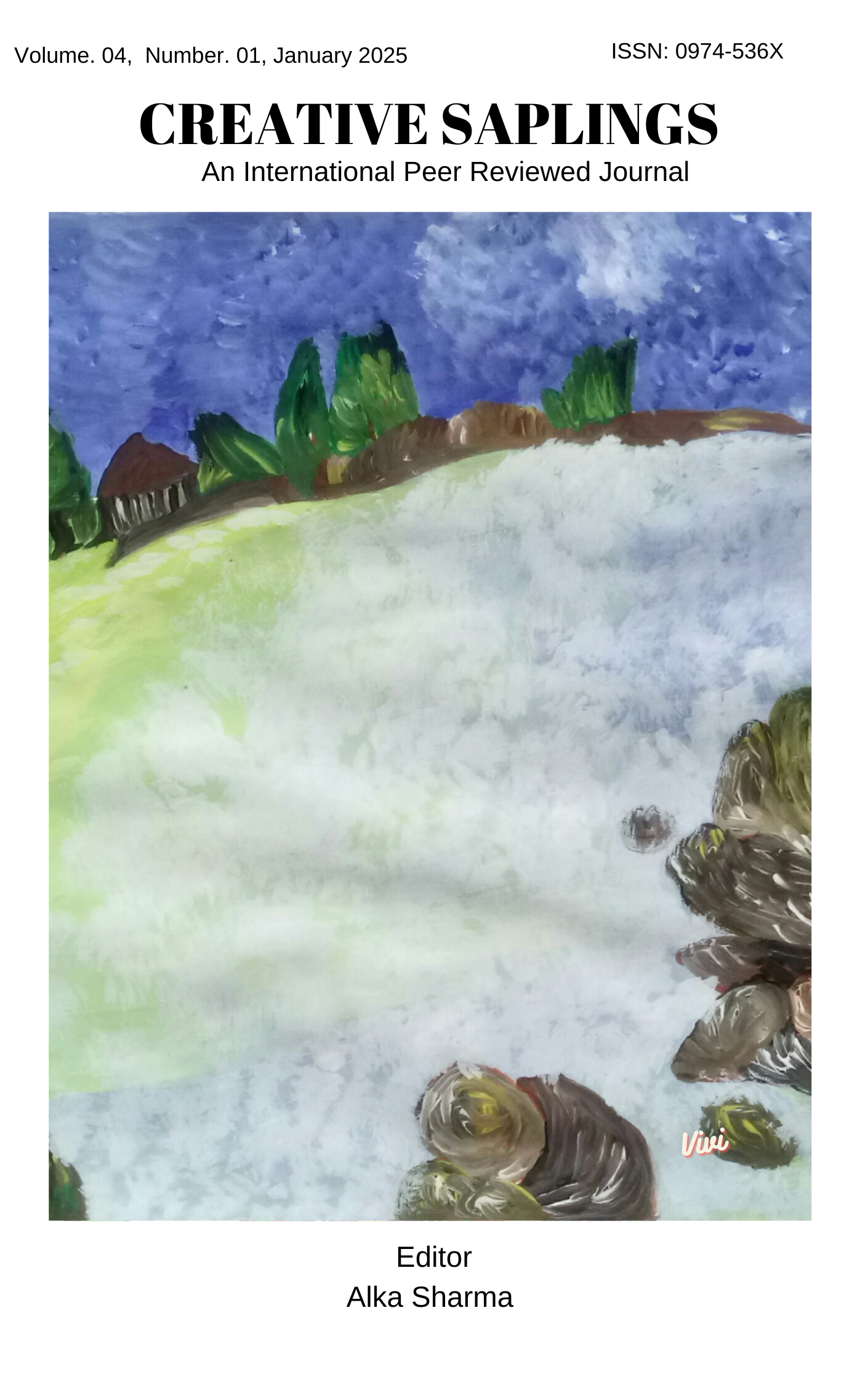Reflection of Contemporary Society in M. R. Kale's English Translation of Sudraka's Mrichchhakatika
DOI:
https://doi.org/10.56062/gtrs.2025.4.01.851Keywords:
Classical, Sanskrit, Virtue, Impoverished, Conflict, Caste.Abstract
Sudraka's classical play Mrichchhakatika, or The Little Clay Cart, is a noted work of art in the Sanskrit language. It has been rendered into English by a renowned Sanskrit scholar, Moreshwar Ramchandra Kale, who has retained the original text and context. The plot is woven around the backdrop of an impoverished yet virtuous Brahmin merchant, Charudatta, and his beloved Vasantasena, a rich courtesan. Both of them epitomize the course of a virtuous life. Charudatta is the protagonist, and Vasantasena is his female counterpart. Their life is disturbed when Shakespearean Iago-like antagonist Samsthanaka, also called Sakara, is after them. So, virtuosity faces a litmus test in the face of sinister maneuvers on the part of the villain. In his villainy, he is aided and abetted by his brother-in-law (sister's husband), King Palala. Now, with the ruling King in his favour, he thinks that he can take undue advantage of the law of the land and commit any crime without a jot of fear. The villain is notorious and lustful and thinks that he can lure away Vasantasena with the power of his money and royal association or kinship. But he is frustrated in his vain attempt to win the love of pure Vasantasena. Samsthanaka nurtures a grievance against her because she has ignored him and chose poor yet magnanimous man Charudatta. The crux of the conflict in the play is Samsthanaka's revenge on the innocent hero and heroine. But at the same time, Sudraka has shown the stark reality of poverty on the part of males, which snatches manliness from them and turns them effeminate and helpless to face family and society. This pennilessness is a phase of low morale and no self-esteem. People's attitude changes when their one-time near and dear ones pass from prosperity to adversity. But one thing has been established: virtue has its reward. The play also brings to the fore that however evil may appear to triumph, it is the truth that prevails in the long run. The proposed paper shall explore Charudatta-Vasantasena's mutual feelings of warmth and affection despite social, economic, and caste disparity. Religion, caste, class, and relative economic status should not be a barrier when it comes to the nobility of the soul. Sudraka attempts to champion this proposition through the warp and woof of the play. The play's one of the most epiphanic moments is the forgiving of the erring villain Samsthanaka by noble Charudatta even when he has been adjudged culpable by the law of the land. This reminds one of Shakespeare, who said, 'The rarer action is in virtue than in vengeance.'
Downloads
References
Sūdraka. The Mrichchhakatika of Sūdraka. Translated by M. R. Kale, edited by Kuljeet Singh, Worldview Publications, 2020.
Shakespeare, William. "True Love" (Sonnet). Palgrave's Golden Treasury, Oxford University Press, 2000.
Downloads
Published
Issue
Section
License

This work is licensed under a Creative Commons Attribution-NonCommercial 4.0 International License.





